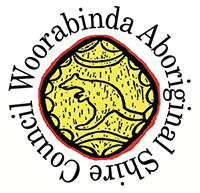WHO WE ARE
We are seven mayors from seven regional Queensland local government areas.
On behalf of the people driving one of our core industries, beef agriculture, our councils are advocating for infrastructure investment to improve the roads that form part of the beef supply chain – Queensland Beef Corridors.
Our beef industry shares values we all endear… resilience, innovation, sustainability, and equity. It is an industry driven by people, young and old, women and men.
Its product fulfils a basic need for consumers around the globe.
We believe that investing in those roads does not only improve supply chains. It is an investment that unlocks potential that we already know our region holds. Potential for the wider economy, other industries, but most importantly for people and future generations.
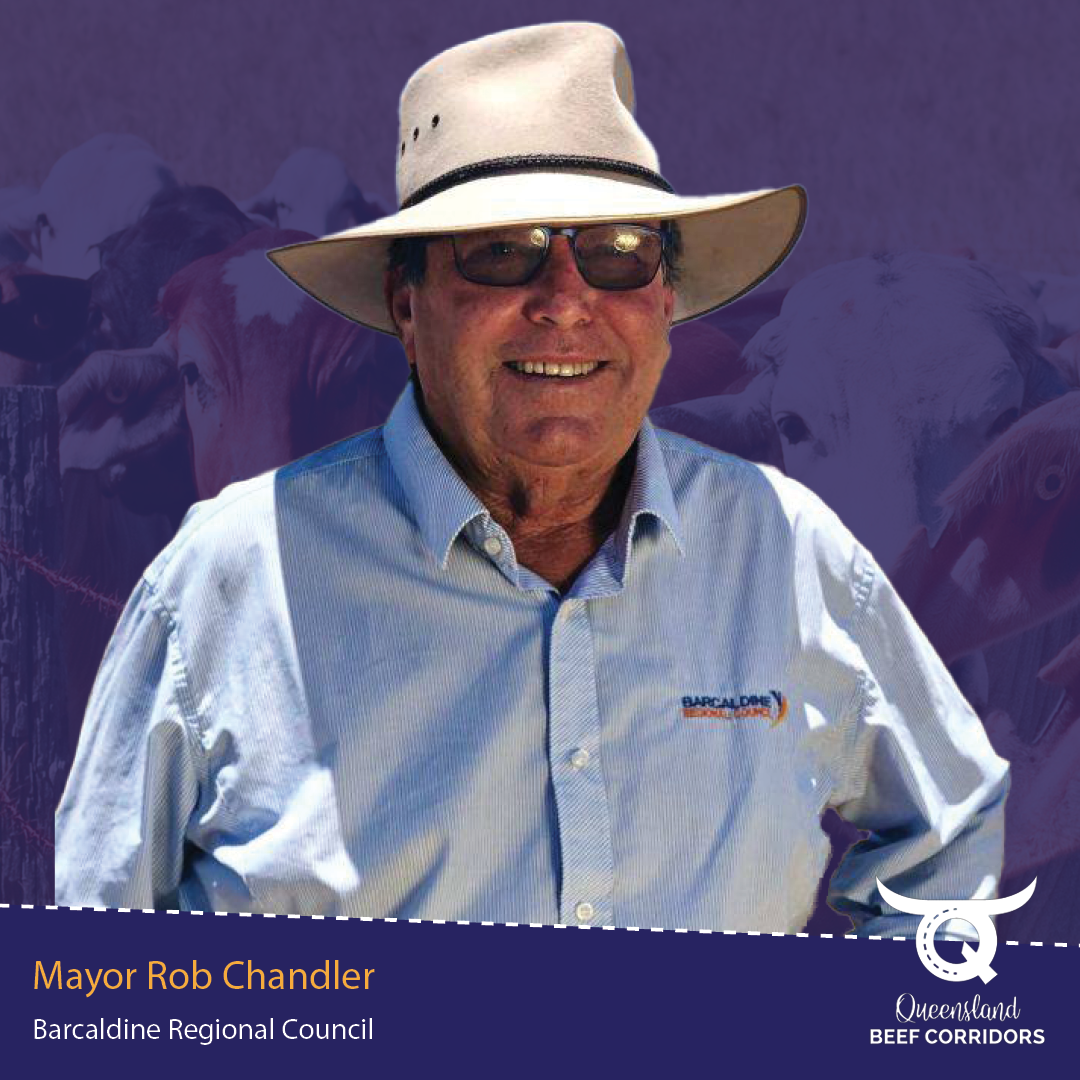
Barcaldine Regional Council
Barcaldine Regional Council Mayor Rob Chandler said his commitment to the community is evident in his advocacy for Queensland Beef Corridors.
Mayor Chandler said he firmly believes in the regional resilience demonstrated by the agricultural industry.
“The agricultural industry continues to keep Queensland moving during the COVID-19 pandemic and this has clearly demonstrated our regional resilience,” Mayor Chandler said.
“However, this cannot be maintained without critical road infrastructure such as our beef roads. Our beef roads are equally as important and critical as any other state priority.”
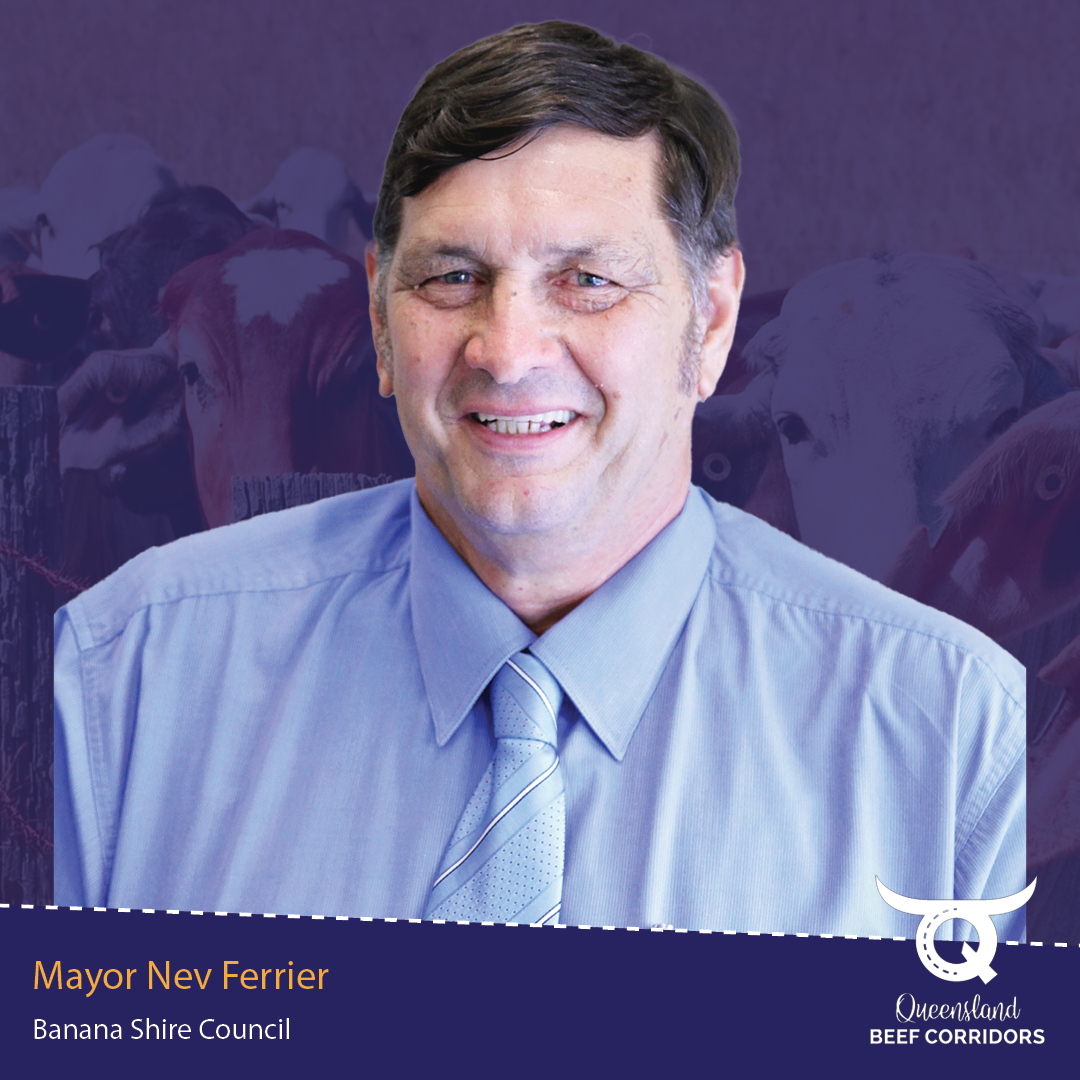
Banana Shire Council
Banana Shire Council Mayor Nev Ferrier said his commitment to the community and the local economy is evident in his understanding of the region’s agricultural and industrial needs.
Mayor Ferrier said the three meat processing plants in Central Queensland, two in Rockhampton and one in Biloela, collectively employ about 2,000 people and rely on the delivery of up to 3,000 head per day.
“We need to be able to get road trains from western Central Queensland to the Gladstone Port via the Capricorn, Burnett and Dawson Highways via Dululu, Biloela and Gladstone,” Mayor Ferrier said.
“Queensland Beef Corridors will also benefit our tourism industry and other strong export commodities that are transported from western Central Queensland to the Gladstone Port like grains, mung beans and chickpeas.”
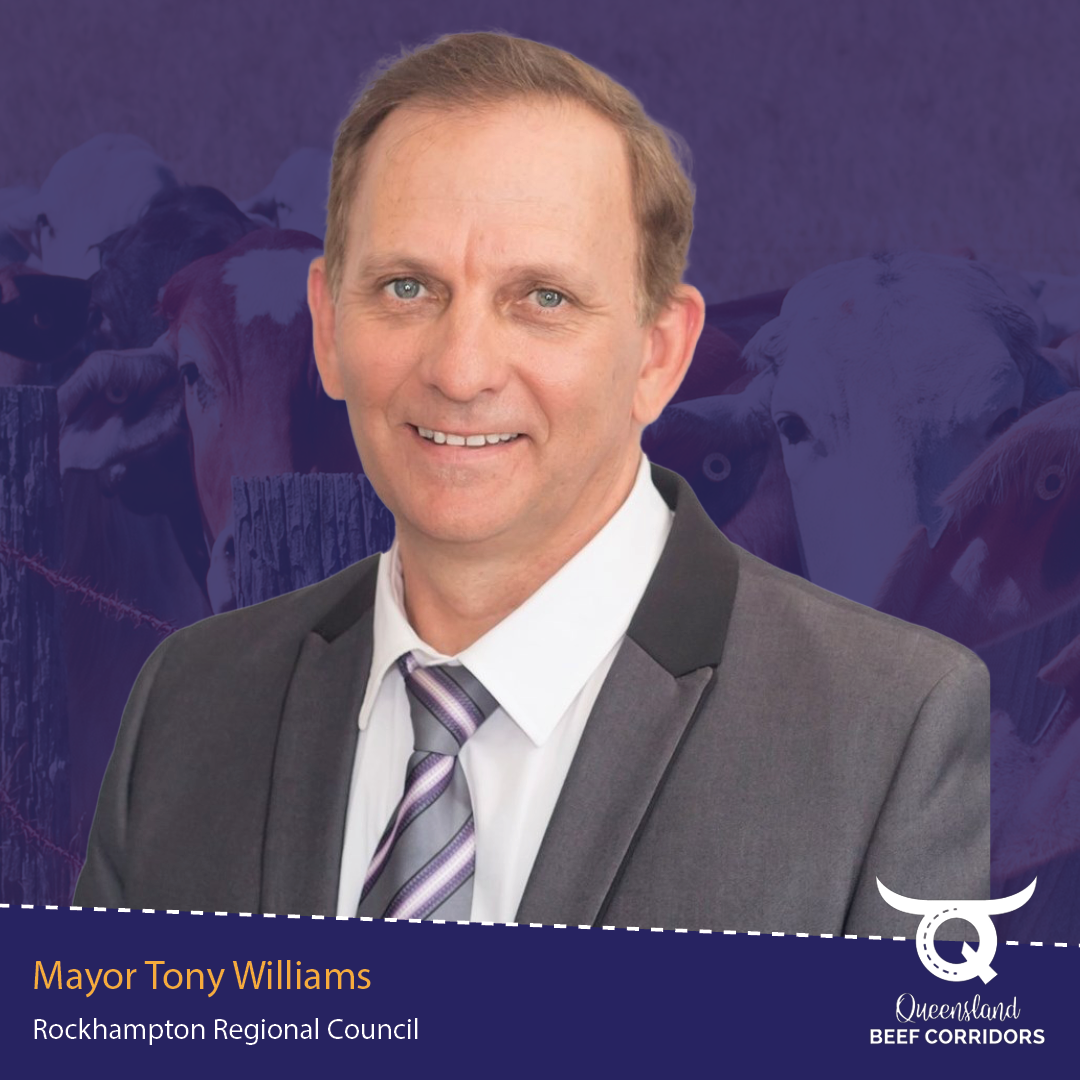
Rockhampton Regional Council
As the Beef Capital of Australia, Rockhampton Regional Council Mayor Tony Williams said his region depends on the transport of cattle for breeding, backgrounding, sales and meat processing.
“Ensuring reliable transportation is vital to the beef supply chain and the growth of local jobs,” Mayor Williams said.
“Meat processing firms in Rockhampton including Teys and JBS are undertaking their own expansions to process more beef for domestic and international markets and will rely heavily on improved transportation from across Central Queensland.”
“Growth opportunities also exist at the Gracemere Saleyards which are currently at the mercy of a beef transportation system that hasn’t changed since the 1950s.”
“A robust beef corridor road network will assist councils and create a more connected Central Queensland.”
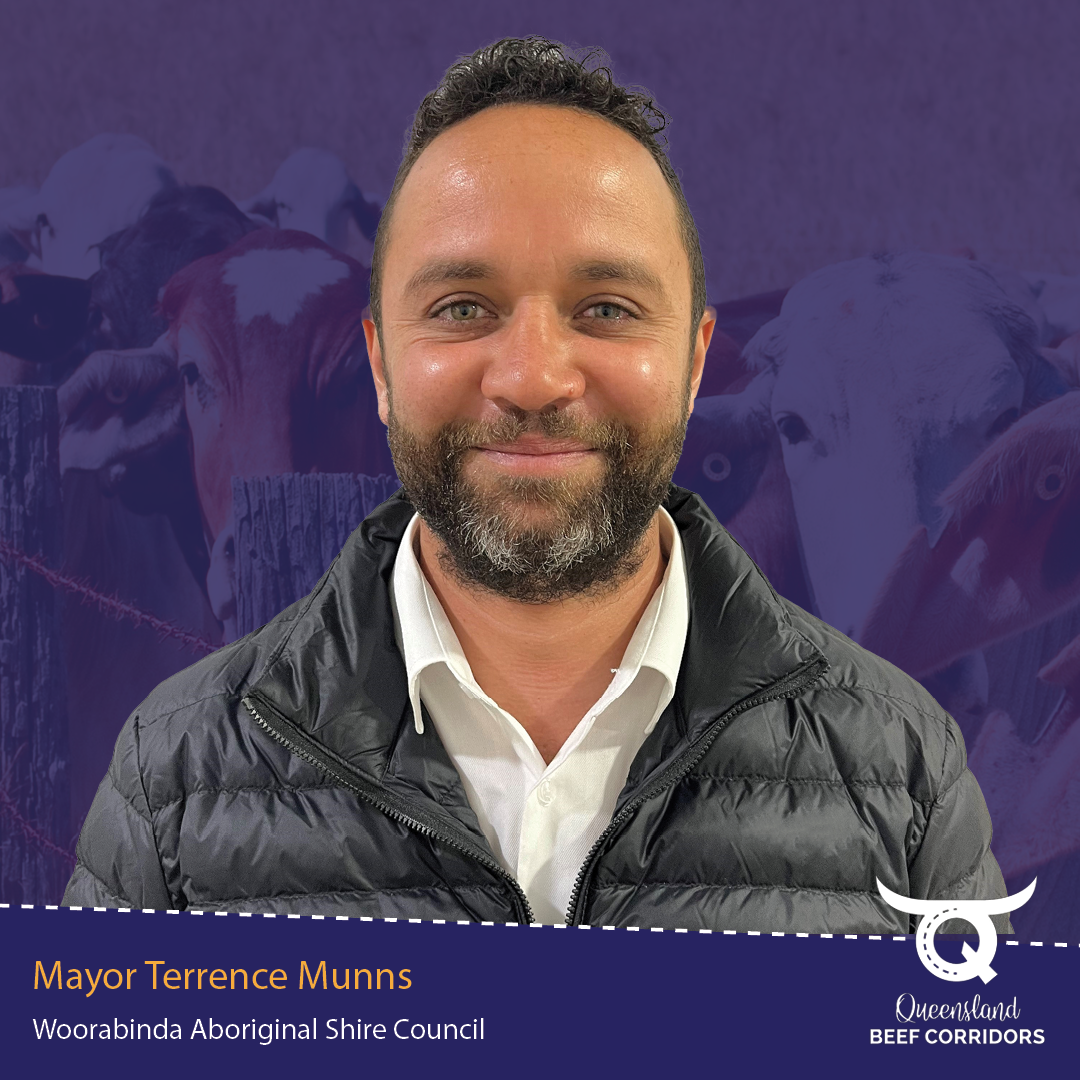
Woorabinda Aboriginal Shire Council
Woorabinda Aboriginal Shire Council Mayor Terrence Munns said his council is deeply passionate about advocating for major industries in Central Queensland, particularly beef and agriculture.
“The Woorabinda Pastoral Company, a testament to our commitment, operates across six properties covering approximately 47,000 hectares in Central Queensland. This enterprise, solely owned by the Woorabinda Aboriginal Shire Council, manages 5,000 head of cattle and cultivates up to 5,660 hectares of crops, including wheat, corn, chickpeas, sorghum, and mungbeans. Our operations contribute significantly to the regional economy.”
“Efficient transportation networks are essential for the timely and cost-effective movement of goods, services, and people. Unfortunately, the current state of our roads falls short of meeting the demands of our growing industries”.
“We are calling on all levels of government to prioritize and invest in road infrastructure improvements in Central Queensland. By doing so, we can ensure the continued growth and prosperity of our major industries, particularly beef and agriculture, and enhance the quality of life for all residents of Woorabinda and the surrounding regions.”
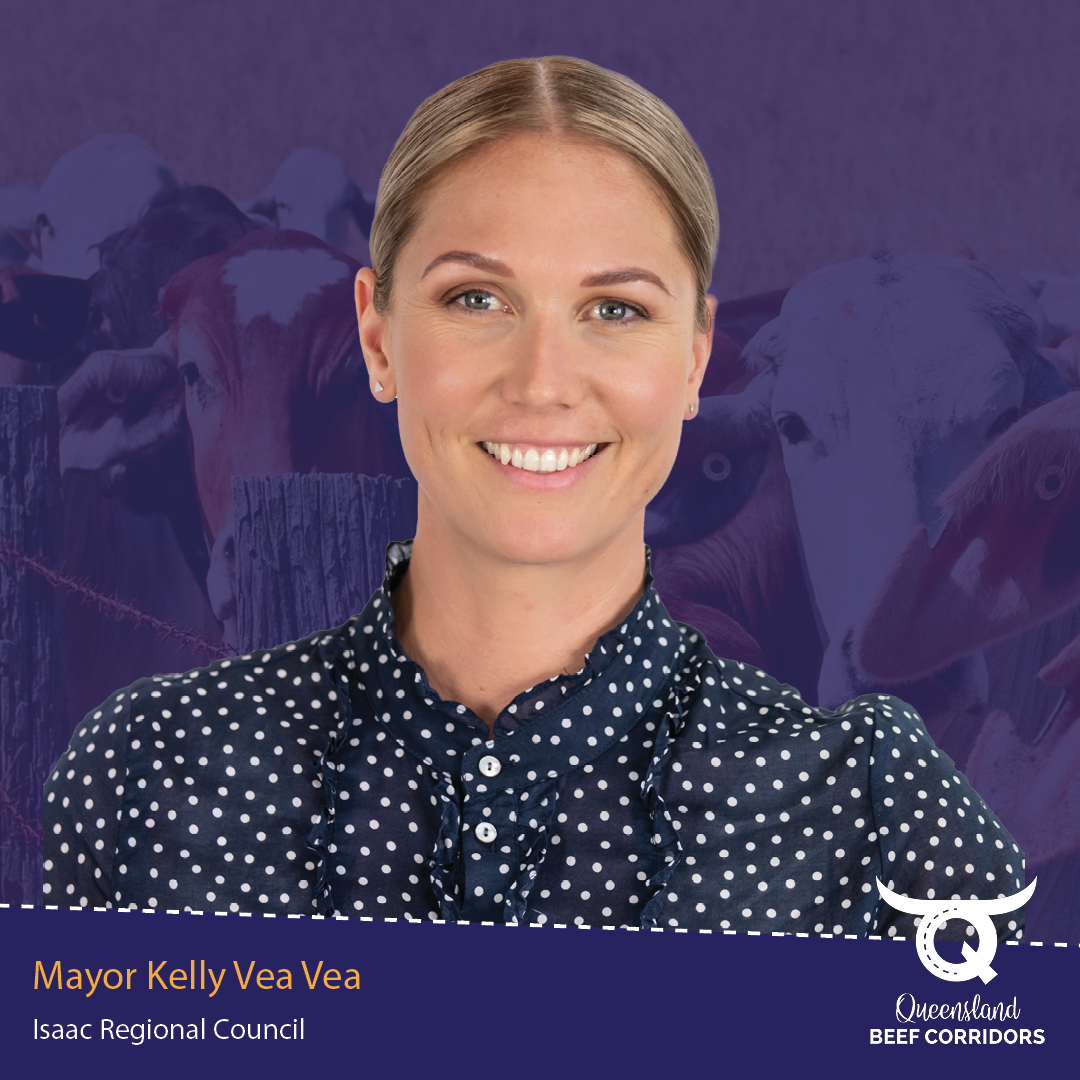
Isaac Regional Council
Queensland Beef Corridors committee chair Isaac Regional Council Mayor Kelly Vea Vea said the beef and grains industry here in the heart of Central Queensland is world class.
“Our thriving agricultural industry shares the road network with an emerging renewable sector in one of the largest mining regions in Australia,” Mayor Vea Vea said.
“We know that our roads were never built to manage the size and scope of traffic we are experiencing. Our roads are integral to feeding, powering and building communities all across the globe and it’s crucial that our infrastructure not only meets the need, but unlocks our potential.”
“That’s why Isaac Regional Council is a member of the Queensland Beef Corridors, to advocate as a collective and work together to deliver for our industries, businesses and communities now and into the future.”
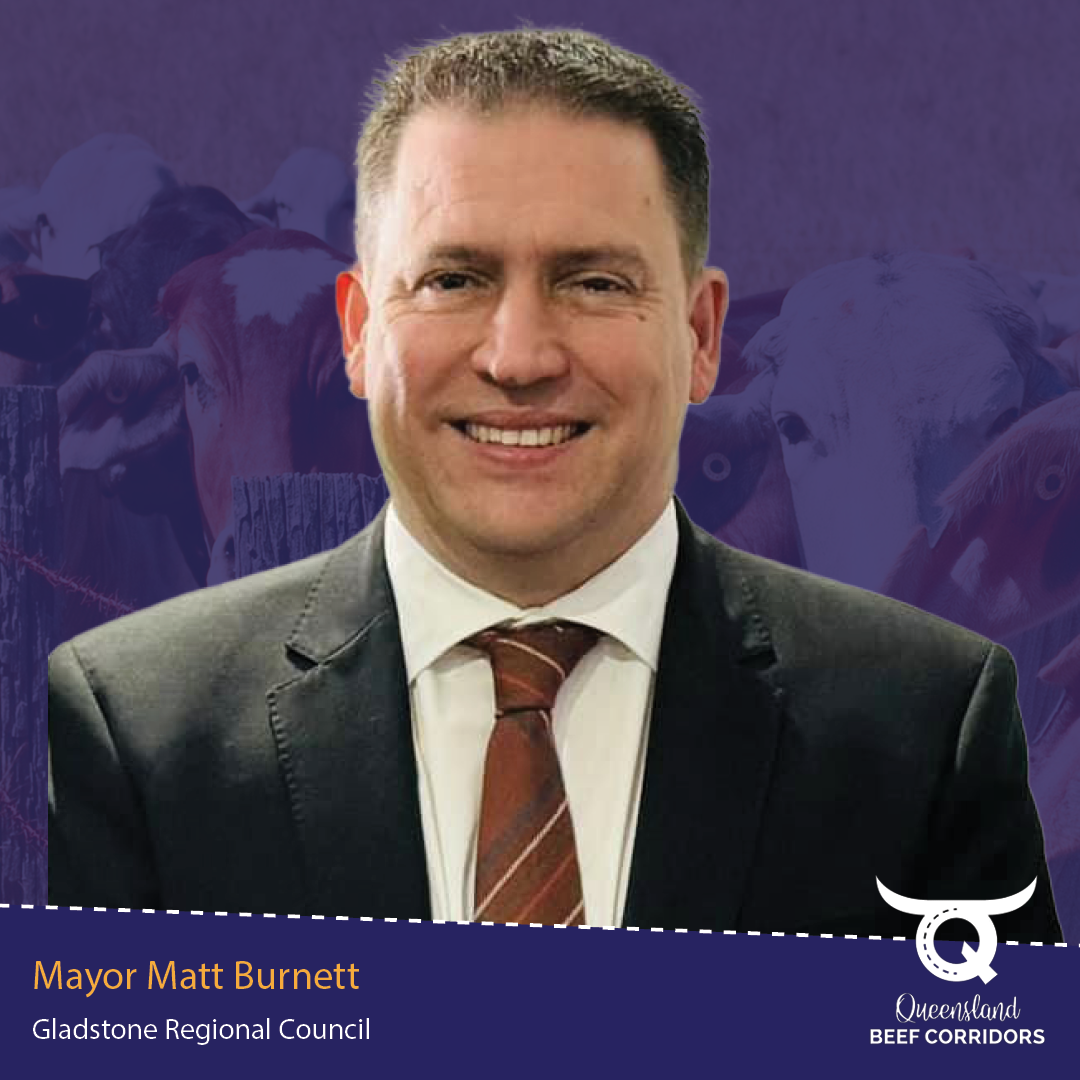
Gladstone Regional Council
Gladstone Regional Council Mayor Matt Burnett said the heavy vehicle access route into the Port of Gladstone, a world class deep-water port, incorporates the Gladstone Port Access Road which currently does not allow for Type 1 Road Train access.
“Upgrading Type 1 Road Train access from the Dawson and Capricorn Highways into the Port of Gladstone would reduce logistic costs and time,” Mayor Burnett said.
“The Port of Gladstone is a gateway to the rich Central Western hinterland of Queensland and need efficient connections through the Queensland Beef Corridors.”
“Accessing the Port of Gladstone can open the door for lucrative beef export, as well as agricultural exports straight to Asian markets, and improved supply chains for agricultural imports and consumables.”
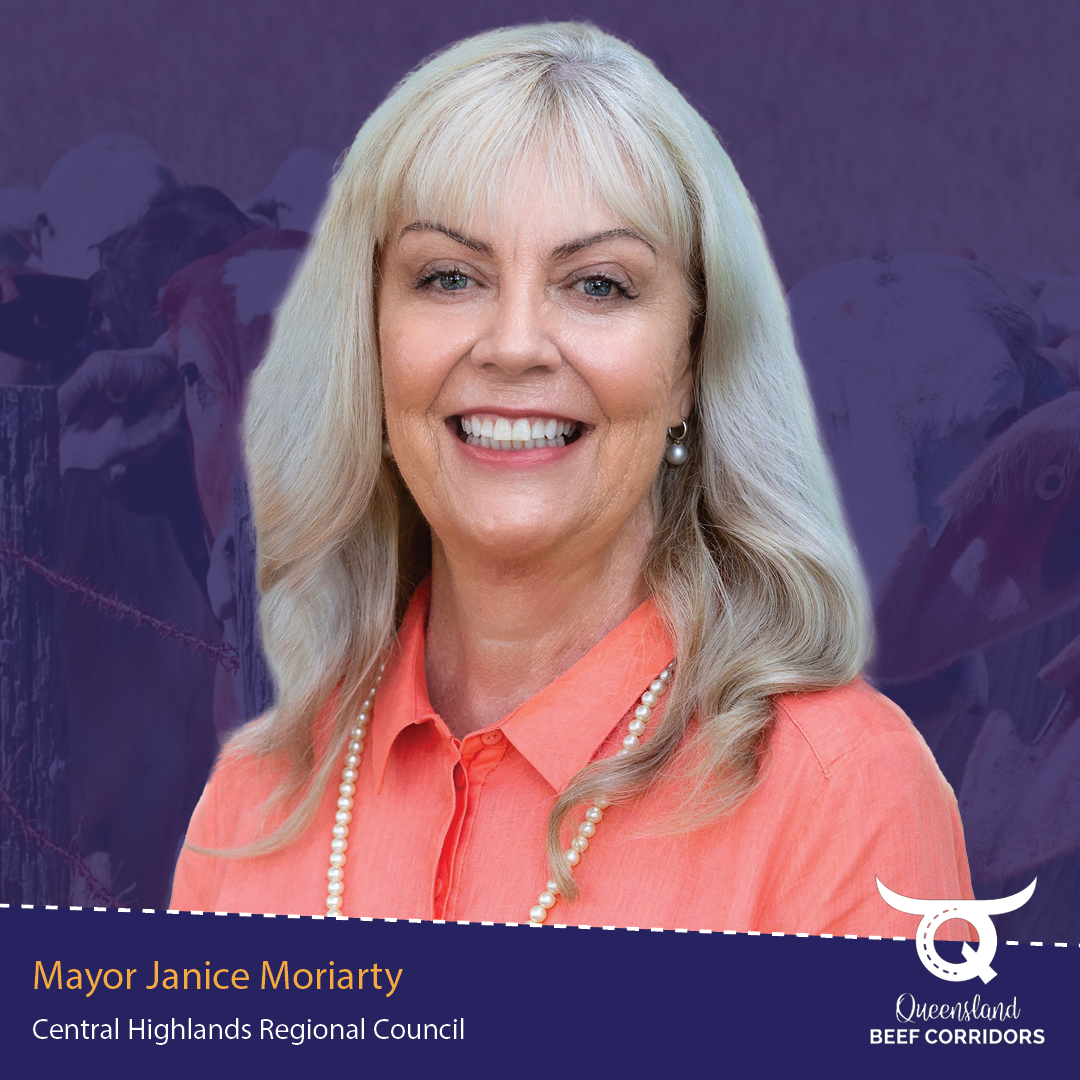
Central Highlands Regional Council
Central Highlands Regional Council Mayor Janice Moriarty said her region is committed to ongoing support of the Queensland Beef Corridors.
‘This strategic network of roads intersects at the Central Highlands, connecting inland beef producers to meat processers and ports in the east,’ she said.
‘Central Queensland represents a quarter of our nation’s beef herd and is home to some of the most advanced and innovative grazing industry practices.
‘CQ roads urgently need to match the standard of the world-class products being produced in this region.
‘From getting these products faster to market, to reducing transport costs and improving road safety for everyone, this project is a win-win for our residents, visitors and the beef industry.
‘Investing in the beef corridors is investing in the future sustainability of this vital industry.’





